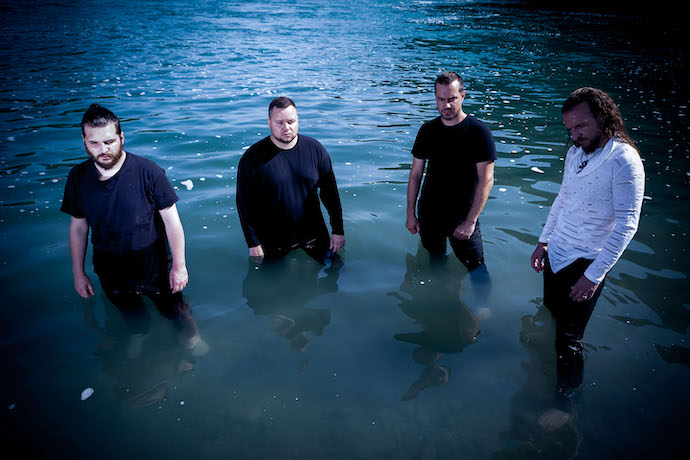
(Through a new album released in September by Osmose Productions the French black metal mystics in Caïnan Dawn invite listeners to immerse themselves and drown in watery vastness, and to help guide your way into the depths Comrade Aleks conducted the following interview with the band’s vocalist Heruforod.)
Caïnan Dawn from Chambéry, Auvergne-Rhône-Alpes will celebrate their 20th anniversary the very next year, but their discography isn’t as extensive as you might suppose. The band took their time to evolve their ideas and had a four-year long pause after the release of the first demo In Darkness I Reign (2007), hiding in the depths of the French black metal underground.
The first full-length Nibiru saw the light of day only in 2011, and then albums started to appear regularly. Thavmial – in 2014, then F.O.H.A.T. — in 2017, and now after the quarantine-induced break we have something new.
Caïnan Dawn’s fourth album Lagu was released by Osmose Productions in September 2022. This material took the band further from the melodic black metal sound of Nibiru and they have tried their hands on its avant-garde branch. The album’s concept fits perfectly with this updated sound, and Caïnan Dawn’s singing vocalist Heruforod told us the story behind Lagu.
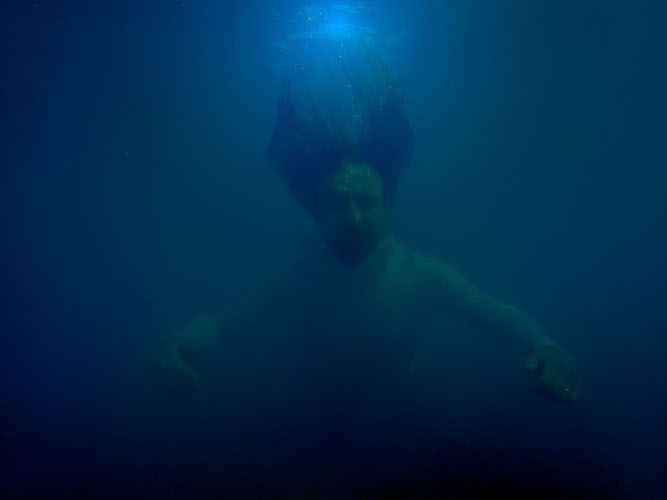
Hi Heruforod! Thanks for your time! How are you? Did the release of Caïnan Dawn’s fourth album Lagu draw enough attention?
Hi “No Clean Singing”! Thanks for this interview. Well, I think that this album has the same kind of attention as our previous albums, that is to say quite succinct. Nowadays, you have to be extremely connected with the social media like Facebook and post a lot of things to be “listened”. We do our music and that’s all, I think that we are stuck in the ’80s for that! But we have many persons who truly like Lagu for its density and its ambience and this is the most important. Thanks to them.
But you’re on Osmose, a respectable label with world-wide recognition, doesn’t that make promotion easier?
Of course, we are very proud to be on Osmose Productions. Promotion is a little easier, it’s true. But we have composed a work that remains almost “post-black metal” and perhaps this album remains also far from current productions. I’ve even been able to see press articles on magazines that don’t deal with metal at all but rather with current or post-rock music and I find that quite incredible. Fortunately, Osmose always supports us in our direction and we thank them very much for that.
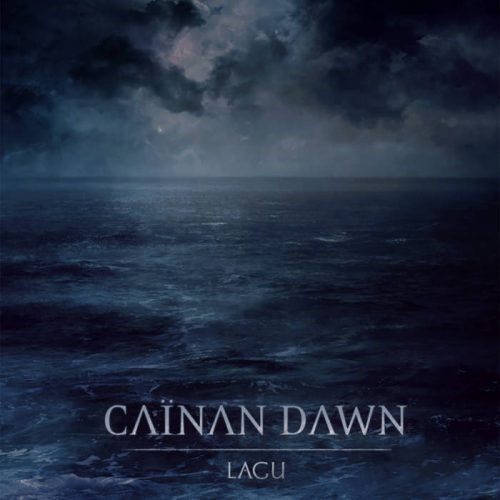
Correct me if I’m wrong but Lagu means “song” in Indonesian or “sea” / “water” in Old English. Why did you choose this language for the album’s title? Well, or what does it mean?
At the beginning of the writing of this album, we knew that the main theme would be the ocean. I like to use ancient words or ancient meaning to reveal a place or a feeling, and the runic language has been used to represent these feelings. With the rune Lagu or Laguz in the Futhark, this meaning come true.
Also, you can see “The Songs” of the siren, this hypnotic song which draws you towards them and death…
You have released albums regularly since the release of Nibiru in 2011, but there’s a five-year break between F.O.H.A.T. and Lagu. Should we blame covid for that?
Not really. We played at several gigs after the release of Fohat and after that we wanted to create an album that woul be really different than this one. So we took our time for the composition and we also needed to recharge our batteries on other activities.
What’s your motivation behind writing music? Does the process feed you back? Or do people’s reactions encourage you?
It has always been an outlet, a powerful melancholy and a sense of duty. Obviously, the reaction of the people who listen to our music is important. If they manage to capture the emotions and moods of our songs, then we can only be proud.
All of Caïnan Dawn’s albums keep the similar deep and dark vibe, though they differ from each other technically. Does Lagu stand aside from the others for you or do you see it as an integral part of this mystical sonic stream?
Although Lagu is different from our previous albums, the writing remains imbued with the feelings and moods of our music. We like dark music, we love that feeling of darkness that emanates from a melody, that feeling that brings you closer to your soul.
As you said, the Ocean is a central motif of Lagu’s songs. How do you see it? Which of its aspects did you aim to reflect in your songs?
The mystery is perhaps the most fascinating aspect. We know very little about the abyssal depths, if at all. It is an environment which is close to us because it is palpable, but so distant at the same time that it is terrifying. It is also an analogy with death. We rub shoulders with it every day but beyond our meager knowledge, the mystery remains absolute.

How did you record Lagu? Do you prefer to work at home or do you have a rehearsal place and choose professional studios?
The album was written at home. I’ve been using the same process for years: a demo of each song is made and sent to the other members, then we rework everything in a rehearsal room before recording.
We also got into the habit of going for three days to record the drums in the heart of the Chartreuse mountains. We then called on the Studio “Plastic Lobster” to record the guitars, and these were done in the center of Grenoble. Finally, everything is mixed at home.
Do you need a special mind-set when you record your songs? What was your primary intention when you started recording this material?
Taking the time is necessary to execute the songs well. We are especially happy to find ourselves among members because finally we don’t see each other that much. We already know which direction we want to take because we discuss it at length.
You recorded Lagu with the same lineup as F.O.H.A.T. Does it make things easier? Does the inner machinery work flawlessly now?
Indeed, we have had the same line-up for some time and that obviously makes things easier. For example, when we recorded Fohat, our drummer learned the songs three months before entering the studio. Fortunately, he had more time for Lagu. We are a well-oiled machine, and defending the album live is what we want now.
“Black metal” means “danger” in its original sense. Which qualities of this genre help you to build the right atmosphere and emphasis for the album’s concept?
I don’t think the word “danger” is what drives us the most in this kind of music. Death may be synonymous with danger, but it is rather a finality, the inevitable. This is what drives us, death makes us somehow alive.
Which bands actually formed your taste towards black metal and metal in particular?
Personally, I am very attached and obviously to the Norwegian or Swedish scene of the ’80s/’90s. Darkthrone, Arckanum, Burzum, and Bathory are perhaps the ones I listen to most often and the ones that transcend me the most. One has the impression that an entity hovers over the albums of those years.
Caïnan Dawn’s lyrical themes are summed up as “mysticism, occultism, meditation” by Metal-Archives. Would you agree with that? What kind of other themes do you rise in your songs?
Yes, it is a mixture of all of these. Our music is first of all a meditation, a journey towards the mystical, the unknown. On our previous albums, the songs were sometimes written as an incantation and even as a ritual. We wanted to raise forces that overwhelmed us, that hypnotized us. But themes closer to terrestrial life are also used, notably on Lagu. Although it is a journey towards death, themes such as ecology or depression can be interpreted. Maybe it’s the wisdom of age.
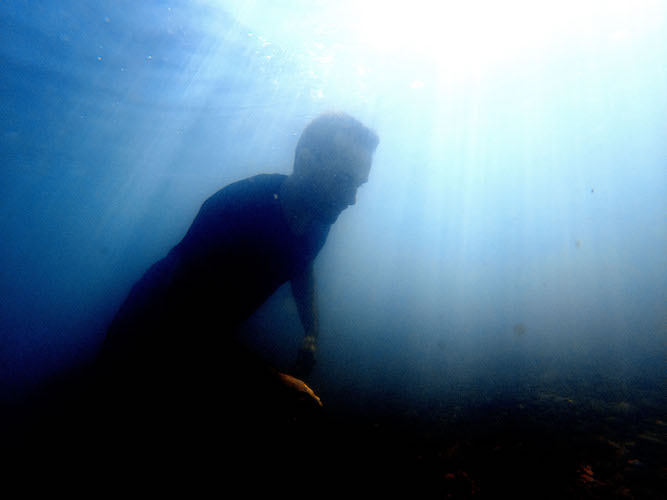
What about Lovecraftian influences? How did you come to the idea of the “Y’ha-Nthlei” song? What kind of themes did you aim to transfer through this song?
When I was a teenager, the new “Dagon” shocked me. There was such power in the words and the resulting universe was absolutely frightening. This story simply had its place on the album, for its truth, its influence and its darkness. Turning Lovecraft’s text into a song? It was an accomplishment in itself.
Y’ha-Nthlei is the undersea city of the Deep Ones, but Cthulhu’s dwelling – R’lyeh — is a far more popular location for metal bands. Why did you focus on this particular theme?
I see the short story almost as an esoteric story or incantation. The text present on Lagu is almost seen as an appendix to the original story. Lovecraft is perhaps the person who has written the most about the details of worlds inconceivable to humans, inconceivable to life itself. We always remain in this idea of knowledge that is almost perceptible but that the slightest knowledge would drive us almost crazy, like the oceans, space and death. The idea had its place on Lagu in the end.
The French black metal scene was famous with its savage spirit almost two decades ago. How would you describe it now? How much of the local scene is in Caïnan Dawn?
The French scene is like its land, we are attached to old traditions. From the black legions until today, there resides a form of melancholy in French black metal. The scene remains alive and those who bring it to life remain attached to this passion that has driven them for years.
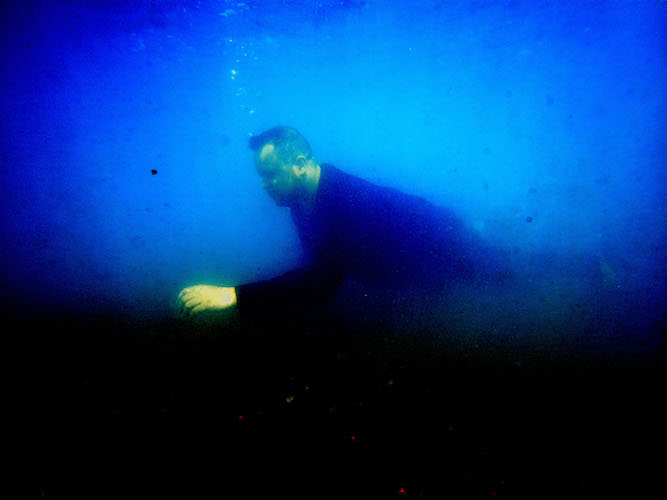
So do you feel yourself a part of it? A part of the inner circle or whatever?
Nowadays, not really. Looks like our time is over. This is a question that perhaps deserves further reflection, because Black Metal is much more than just a musical genre.
What are your further plans for Caïnan Dawn?
We are looking for dates for Lagu‘s promotion but it’s not easy at the moment, we hope the situation will change!
Why is it not easy?
We don’t want to go through a booking agency to find dates, we can do it ourselves. But it looks like the scene is a lot busier than we thought. Money is always at the center of everything unfortunately.
Okay, thank you for the interview Heruforod. I wish you good luck with the organization of Caïnan Dawn’s gigs in the nearby future and with Lagu’s promotion. Would you like to add a few more words of undersea black metal wisdom for our readers?
Thanks a lot for this interesting interview. And don’t forget, no man can swim unless he enters deep water…
https://osmoseproductions.bandcamp.com/album/lagu
https://www.facebook.com/cainandawn
https://cainandawn.bandcamp.com/music
